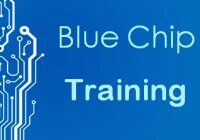 Overview
Overview
Quantum computers are machines that are built on the principles of quantum mechanics. Unlike classical computers which rely on bits that can only exist in one of two states (0 or 1), quantum computers use quantum bits which can exist in multiple states at once. Quantum computers are expected to process algorithms and solve problems much faster than classical computers.
Cirq is a Python library for writing, manipulating, and optimizing quantum circuits and running them against quantum computers and simulators.
In this instructor-led, live training (onsite or remote), participants will learn the fundamentals of quantum computing as they step through the development of algorithms targeting quantum computers.
By the end of this training, participants will be able to:
- Set up the necessary development environment to start creating quantum circuits.
- Control gate behavior using the gate’s native counterpart.
- Improve on quibit inaccuracies using Cirq.
- Write and execute a quantum circuit to run against a NISQ based quantum computer simulator.
Format of the Course
- Interactive lecture and discussion.
- Lots of exercises and practice.
- Hands-on implementation in a live-lab environment.
Course Customization Options
- To request a customized training for this course, please contact us to arrange.
- To learn more about Ciq Framework, please visit: https://github.com/quantumlib/Cirq
Requirements
- An understanding of software and hardware computing concepts.
- An understanding of complex numbers and linear algebra.
Audience
- Developers
- Scientists
- Engineers
Course Outline
Introduction
Quantum Information Theory
- The uncertainty theory
- Superposition and entanglement
- Subatomic particles
Overview of Classic Computers
- Bits
- Binary systems
- Transistors
Quantum Computing
- Topological codes
- Circuit QED
- Quibits
Understanding Quantum Computers and NISQ Processors
- Algorithms for the NISQ Architecture
Overview of Cirq Framework
Overview of Quantum Development Kits
Setting Up the Quantum Development Environment
Cirq Data Structures and Syntax
Preparing the Quantum Machine Simulator
Case Study: Low Depth Quantum Algorithms for Quantum Chemistry Problems
Writing a Quantum Algorithm
Controlling Quantum Circuits
Specifying Gate Behavior and Placement
Scheduling the Timing of Gates
Compiling the Algorithm
Dealing with the Constraints of Quantum Hardware
Running the Algorithm on a Local Simulator
Testing and Debugging an Algorithm
Integration with Cloud Simulators
Integration with Future Quantum Hardware
Troubleshooting
The Future of Quantum Computing
Summary and Conclusion
